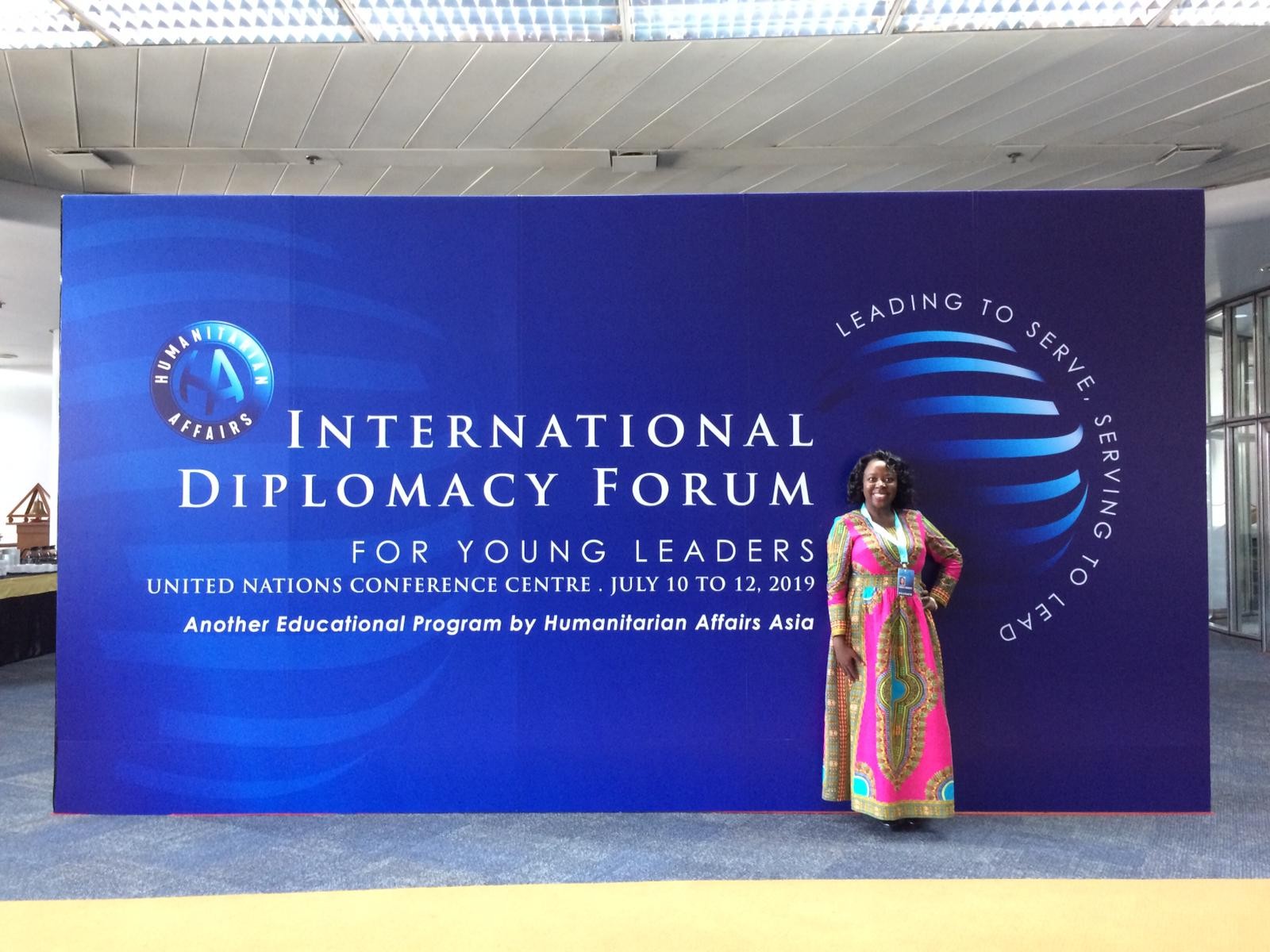Demystifying Diplomacy
Demystifying Diplomacy
Nadine Nicole Muschette's Story
Faculty of Education
PhD
While diplomacy seems inalienable from glamorous intrigue, it has plenty of practical, real-life applications. Nadine Nicole Muschette, a doctoral research candidate in the Faculty of Education, recently delved into the art by taking part in the International Diplomacy Forum last July. Held at the United Nations Conference Centre in Bangkok, the Forum provided an introduction to international diplomacy through talks and training sessions held by experienced UN officials and other field professionals.
Nadine’s global vision led her to apply for the Forum. As an aspiring global education specialist for the diplomatic corps of her country of origin, Jamaica, Nadine naturally hoped to learn more about international diplomacy. Furthermore, as a passionate educator, Nadine believed in the power of effective learning and training. The Forum, spearheaded by diplomatic professionals, proved to be a unique opportunity for growth.
So what is diplomacy really about? According to Nadine, the Forum discussed this in a memorable session with Professor Kishore Mahbubani, former president of the UN Security Council. Authoritative and dignified, his presence in the room was tangible. One of his lines left a particularly strong impression: “In a war between principle and power, power always wins.” Therein lies the power of diplomacy: through diplomatic relationship-building, one can forge a conversation between power and principles. Inevitably, this balance can be upset when a diplomat’s principles go against those of the power-holders. In this scenario, the diplomat must continue to exercise his or her skills by choosing a wise moment to voice out truthful concerns, and resigning when voicing out proves fruitless.
The Forum also emphasised the widespread application of diplomatic skills. According to Nadine, diplomatic skills are highly relevant beyond the political sphere, but not in the way one may expect. People normally associate diplomacy with “hard skills” such as multilingualism and sophisticated negotiation tactics. is the abstract interpersonal skills that make a successful diplomat. Essentially, diplomacy is “common sense courtesy”. Whether to friend or “foe” (namely, those who hold different ideologies), and across all ranks and cultural borders, a good diplomat can sustain relationships as he or she is sensitive to people’s individual nuances. This concept was taught practically during the Forum, for example, during a dining etiquette session where participants learned how to serve their dinner partners appropriately. Hence, Nadine believes that diplomatic skills are relevant to all because courtesy and respect – the central tenets of diplomacy –make society work.

“Listening is just as powerful as speaking.”
Nadine shared several skills learnt from the Forum that she has been applying in real life. The first one regards catching the attention of a stranger in a room. The first thing you should do is make eye contact from a distance. After that, you should read her or his eyes to determine whether or not they want you to approach them. If their response seems positive, you can go forth and make a conversation with him or her. Nadine tried this tip during the Forum, and found that it worked! The second tip is about effective communication. According to a UN communication specialist, we should only speak our position once and let our words stand. This tip reminds us to listen to others carefully and note their body language and general demeanour. When we do so, we can better understand how they would want to be treated. Sometimes, listening is just as powerful as speaking.
Relationships, whether we like them or not, form an integral part of our daily existence. But when fraught with foot-in-mouth situations, these relationships can disintegrate easily, bringing down along with them the chance for mutual growth. Hence, effective interpersonal communication forms an important line of defence against conflict. Through acquiring diplomatic skills, we become more sensitive to the nuances of human interaction. For students interested in the arts of diplomacy, the International Diplomacy Forum would be a useful primer.
Written by:
Gabrielle Tse Mei Ying
Year 3, Faculty of Arts
March 2020


